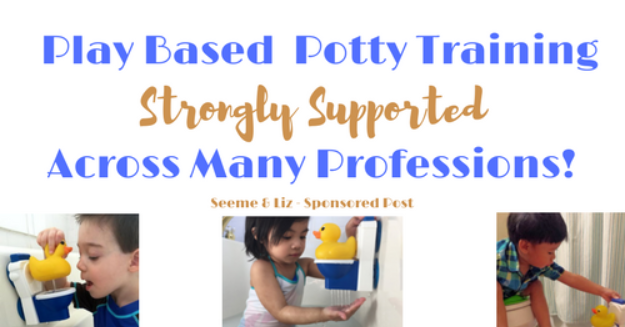You are probably thinking that any statement containing the words “simple ways to improve your baby’s sleep problems” is too good to be true.
Nothing about this seems simple.
“Simple” may be a slight exaggeration but the tips themselves that I am about to share, really are simple.
It’s putting them into practice that may not be as simple.
But hopefully I can encourage you to give them a try while shedding light on why, from a developmental standpoint, alleviating sleep problems is so important.
Many babies have problems sleeping and according to some experts a baby not sleeping through the night is not actually a problem and is in fact normal.
Although I bet 99% of parent’s would agree that their baby waking many times a night is definitely a problem.
A newborn (birth to 3 months) will wake several times a night and this is normal, even if you don’t want to think so.
As your baby gets older (6 months+), their sleep patterns mature, becoming similar to those of adults.
Keep in mind I am not a pediatric sleep consultant.
My knowledge in this area comes from my own experiences and the reading I have done in this area as I do strongly believe sleep is as important to a child’s development as is eating and having positive learning experiences.
Reasons Why Babies Wake Through The Night
Birth to 4–6 months
- ♦ Hunger
Babies are little and in order to grow (mentally and physically) they need to eat frequently. - ♦ Sleep Cycle
Babies and adults both go through different stages of sleep. As adults we don’t really notice this and just keep sleeping.
Babies, however, often wake up when a change in cycle occurs. They often startle awake and cry. - ♦ Parental Association
The more often a parent uses a prop (bottle, breast feeding, soother, rocking/walking to sleep) to help their baby fall asleep and then transfer them to their crib asleep, the harder it will be for the baby to self soothe.
They will associate the prop and their parent with falling asleep. This is also true when you regularly pick your baby up at night. An association between waking, crying and being held will be formed. - ♦ Crying is Natural
Babies cry for many reasons both during the day and night. It’s just part of being a baby – they have no other means of communication.
Does that mean a parent should run every time their baby cries? That is part of the great Baby Sleep Problems debate (which we aren’t going to try and solve here!)
6 months and older
- Teething
I am sure having teeth coming in hurts and when something hurts a baby will cry! Teething can happen prior to 6 months of age. - Development
Babies sleep cycles are disrupted when they learn something new. This could be rolling over, crawling, babbling, walking, teething, etc. This disruption is often a culprit of night wakings.
5 Tips To Improve Your Baby’s Sleep Problems (plus a bonus tip)
These tips worked for my children.
We didn’t really start to set a “sleep routine” until our babies were about 3 months old. Prior to this we just went with things. Try them out and see if they work for you!
Place your baby in your bed/their crib sleepy, but still awake
I found that making sure my baby was sleepy, and close to falling asleep, and then placing her into her crib allowed her to learn to fall asleep on her own.
Letting your baby fall asleep in your arms and then placing them somewhere else unfortunately doesn’t allow them to learn how to fall asleep on their own.
However, putting your baby into their crib (or wherever they sleep) wide awake, will most likely result in lots of crying.
Feed your baby just before bed time but not as an association with bed time
This doesn’t need much explaining.
I found with my son, feeding him but trying to keep him awake before I placed him in his bed helped him remember that it is ok to lay in bed awake for a few minutes before falling asleep.
Swaddle your baby
I swear by swaddling. This worked for both of my children when they were babies.
My daughter accepted it right away and it pretty much instantly calmed her. It took a bit more effort with my son.
He seemed to fight being swaddled at first, but we persisted and after about a week, he actually welcomed being swaddled.
Newborns have reflexes that are a bit out of control. When an arm flails, it often wakes your sleeping baby.
Swaddling prevents a flailing arm or kicking leg from startling your baby awake.
Swaddling typically works well between birth and 4 months of age. Once your baby is no longer waking due to out of control reflexes, swaddling may no longer be needed.
However some babies will still require either a sleep sack or a sleep suit as primitive reflexes are still present despite the baby no longer wanting (to be) or staying swaddled.
If your baby no longer wants to be swaddled but still wakes up due to startle reflexes check out my review of the Baby Merlin Magic Sleep Suit! It really is magical.
Establish bedtime routines that allow for flexibility
I believe that some form of a bedtime routine aids in establishing good sleep patterns while eliminating your baby’s sleep problems. This can be started in your baby’s first month.
The reason I mention a flexible bedtime routine is because I personally feel that a “set in stone” bedtime routine often ends up being a “prop” just as bottle or breast feeding to sleep can be.
Babies need to be given a signal that it is time for bed and time for sleep.
In our house, the bedtime routine consisted of, while not necessarily in the same order every night: a book, a bath (not every night), a bottle/breast feeding (this was usually first) and a few cuddles in the rocking chair.
We felt that by being flexible with the order of events and skipping things like a bath, helped when we were traveling.
When we were staying at a hotel for a night or 2 we didn’t want to bathe our baby (because some hotel bath tubs are pretty gross).
We also made sure to keep the bedtime routine to under 30 minutes.
The whole point was that our baby would be able to fall asleep quickly and easily without us.
Check on your baby when they are crying
I am not going to get into a cry it out vs don’t cry it out debate. Rather, I’ll share what worked with us, and what has worked with other parents I know.
I believe babies are crying for a reason. It may be as simple as wanting comfort/reassurance from a parent or just being uncomfortable.
Adults have learned ways to deal with discomfort while babies have not.
We were lucky with our daughter.
She started sleeping in 10–12 hour stretches at 3 months old (I know, some of you want to throw something at me right now).
Our son was a different story. He did not “sleep through the night” (by this I mean an 8hr + stretch) until he was 12 months old.
However, when he did wake up either my husband or I would go in. We would try to feed him but sometimes that wasn’t what he wanted. We made sure to be in and out as quickly as possible.
Sometimes he would cry again after we left, but we wouldn’t run right back in. We would wait a few minutes because he often would fall asleep on his own.
I think the bottom line is letting your baby know that you are there so that they feel safe, but don’t spend the entire night in their room.
White noise or instrumental music
White noise was a life saver for nights when my baby would not settle. It also worked well if there was a lot of commotion in the house. The white noise helped drown some of that out.
We used the Conair White Noise machine. It has many settings on it, however we only used about 3 of them. We tried a cd with instrumental music/lullaby music as well. This worked from time to time, but I feel white noise worked best.
My kids are now almost 11 and 13 and still use white noise. My husband and I have also started using white noise in our room and my sleep has improved!
It Is Crucial To Establish Good Sleep Habits In Children
Establishing good sleep habits at a young age plays an important role in development.
Babies and children need anywhere from 10–12+ hours sleep in a 24 hour period, depending on their age.
You may be wondering why getting a certain number of hours of sleep is so important other than not being tired the next day. And we know a tired baby equals a cranky baby which leads to unhappy parents!
I specifically want to talk about language development and sleep.
This becomes more important after the age of 1, but this is why establishing good sleep habits at a young age is important.
It will be much harder to get an older child to sleep well if they never slept well as a baby.
Sleep in the First Three Years of Life
This is when sleep and brain development are the most intricately related.
Many studies have been done on this topic.
A 2013 study in the British Medical Journal (Mellennium Cohort Study) and a Canadian study from 2008 revealed that children who had inconsistent bedtimes and slept less than 10 hours a night prior to the age of 3 were negatively affected in the areas of language, reading and math skills.
In both of these studies, these children continued to have difficulties in these areas after the age of 3 even when sleep improved.
Other studies have also shown the negative impacts of lack of sleep in brain development in children ages 5–12.
Learning a language is hard work. If your baby or toddler isn’t getting enough sleep or has irregular sleep patterns, there is a good chance his language development can be affected.
Set Sleep Expectations
If you start with some kind of expectations around sleep, more specifically “bedtime” in your baby’s first month of life, I am sure that it will be easier getting your little one to sleep and stay asleep as a toddler.
Remember we all need a good night sleep! Both you and your baby. Therefore, it is very important to combat your baby’s sleep problems before they even start!
If you are really struggling, there are sleep consultants and sleep doula’s available (for a fee) that can work with you and your baby on a 1:1 basis (online or in person) to set up a personalized sleep plan for you.
How does your baby sleep? Have you ever used a sleep consultant?
Please share your answers!
NOTE: A few readers have commented that they found the e-book “How To Teach A Baby To Fall Asleep Alone” by Susan Urban helpful.




